Aug 27, 2024 12:09 PM
Remembering Russell Malone, 1963-2024
Guitarist and bandleader Russell Malone died Aug. 23, while on tour in Japan, after battling end-stage kidney failure.…
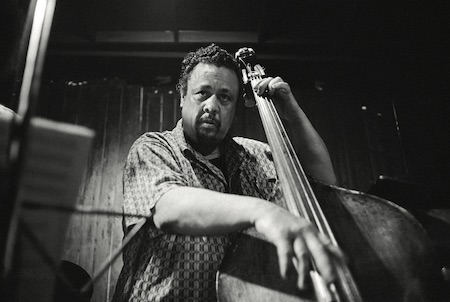
The results of Epitaph are alternately lyrical, cacophonous, raucous and elegiac.
(Photo: Jan Persson)Any consideration of Charles Mingus’ corpus must contend with Epitaph, his magnum opus, a monster orchestral work that is, like the man himself, ambitious, sprawling, ungainly, virtuosic, overstuffed, angry, passionate and restless. Consisting of 19 movements, it was written for an orchestra of 31 — in effect a double big band, augmented by bassoon, oboe, tuba, timpani, electric guitar and vibes.
The score, which exceeds 500 pages, was written over a 20-year period. It takes more than two hours to perform, and was painstakingly pieced together after his death in 1979 by musicologist Andrew Homzy, who found it in the home of Sue Mingus, Mingus’ wife. She had asked Homzy to catalogue the Mingus papers, now residing in the Library of Congress.
Ultimately unclassifiable, it can be construed as a postmodern take on traditional and modern jazz as well as European classical forms and conventions. It includes a few of his best-known works, “Better Get It In Your Soul,” “Peggy’s Blue Skylight,” and “Freedom,” throwbacks to early jazz (Jelly Roll Morton’s “Wolverine Blues”) and nods to Duke Ellington and Thleonious Monk. The work constantly confounds expectations; any time it threatens to go somewhere conventionally, it reaches for the unexpected. The results are alternately lyrical, cacophonous, raucous and elegiac.
Epitaph rose like a phoenix — eventually — from the ruins of what Mingus considered his biggest failure: his disastrous 1962 concert at New York’s Town Hall. The huge orchestra — which included Snooky Young and Clark Terry on trumpets and Eric Dolphy, Charles McPherson and Zoot Sims on saxophones, among many other greats — had been assembled but never properly rehearsed. Copyists were still madly scribbling parts even as the concert was underway. There was even disagreement between the promoters (including George Wein) and Mingus about how to describe the event: Mingus wanted a public recording session, but advertising called it a concert. At one point, according to multiple accounts, Mingus grabbed the mic and exhorted the audience to ask for its money back.
The work was later championed by Gunther Schuller, who conducted the first complete concert version at Lincoln Center in 1989 with a band that included Wynton Marsalis, Snooky Young and Randy Brecker on trumpets, and George Adams and John Handy on saxophones. Sony/Columbia released the recording as a double album the following year. Schuller oversaw another version in 2007, which played in New York, Chicago, Cleveland and Los Angeles with Christian McBride on bass.
Musicians who have performed it testify to its difficulty. Marsalis is said to have once pointed at a passage in the score, saying, “That looks like something you would find in an etude book ... under ‘hard.’”
As you might expect, the bass is often front and center. McBride, recalling the experience, said, “I didn’t get too hung up on the technical difficulty. Any passage I had problems with — well, you just have to practice harder. [But] my sense was that he didn’t want it perfect.” DB
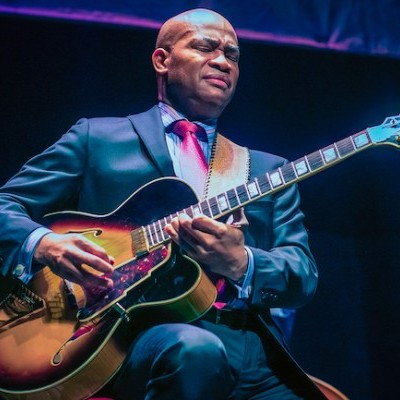
In addition to his instrumental prowess, Malone was praised for his musical generosity and his singular sense of humor.
Aug 27, 2024 12:09 PM
Guitarist and bandleader Russell Malone died Aug. 23, while on tour in Japan, after battling end-stage kidney failure.…
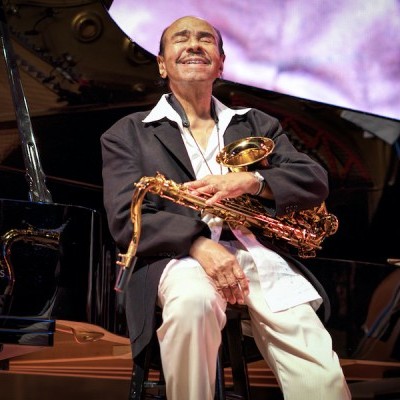
Benny Golson soaks in the music during a late-career performance at Chicago’s Jazz Showcase.
Sep 24, 2024 12:02 PM
Benny Golson, one of the greatest composers and saxophonists of the bebop era, passed away Saturday, Sept. 21, at his…

Harpist Brandee Younger is among the performers on the program for this year’s Hyde Park Jazz Fest in Chicago.
Sep 17, 2024 11:40 AM
The 18th Annual Hyde Park Jazz Festival will be held on 13 unique stages across Chicago’s Hyde Park, Kenwood and…
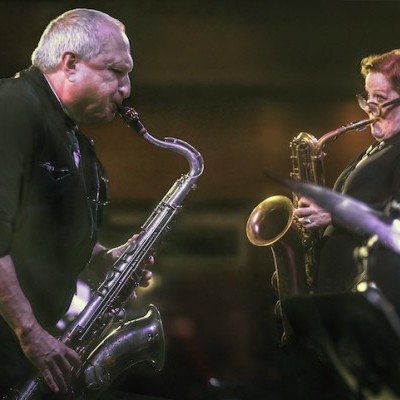
Claire Daly, right, performs with tenor saxophonist George Garzone at Dizzy’s in 2023.
Oct 23, 2024 10:10 AM
Claire Daly often signed her correspondences with “Love and Low Notes.”
The baritone saxophonist, who died Oct.…
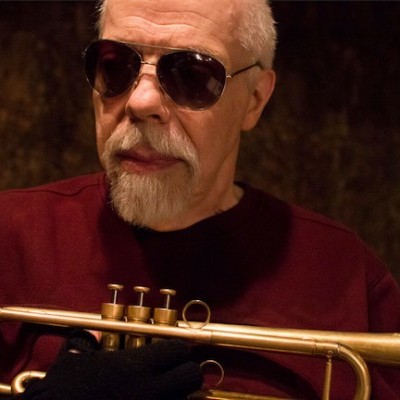
McNeil’s virtuosity as a player was unimpeachable and his imagination as an improviser was vast.
Oct 2, 2024 11:35 AM
John McNeil, a trumpeter, composer and educator who built an accomplished and progressive career in jazz despite a…